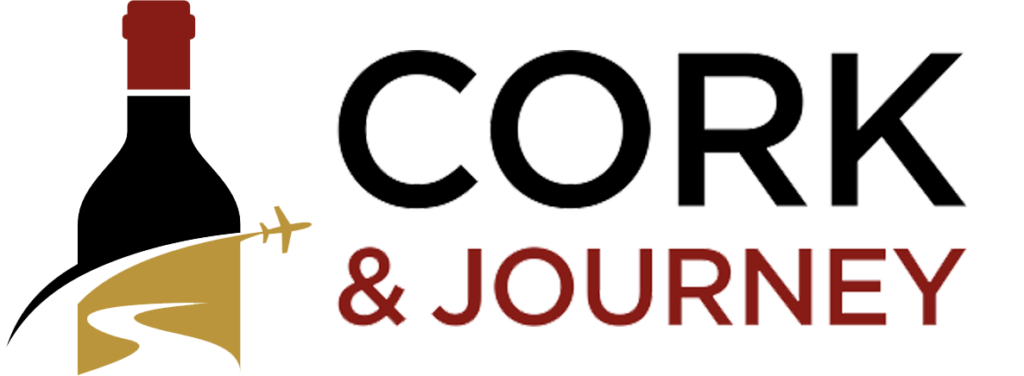Ackley Brands’ recent acquisition of Columbia Winery and Hogue Cellars marks a significant expansion in the wine industry, while Napa Valley faces internal strife over regulations favoring larger wineries. Advancements in AI technology are transforming viticulture and winemaking practices, and Accolade Wines proposes buyouts to adjust to oversupply challenges in Australia. South African wine growers adapt to climate change, and Rhône Valley producers prioritize sustainability to meet market demands and environmental concerns. These developments highlight the dynamic nature of the global wine industry as it embraces innovation and sustainability for a resilient future.
Ackley Brands acquires Columbia Winery, Hogue Cellars from Gallo – Northwest Wine Report
Seattle-based Ackley Brands has successfully expanded its holdings in the wine industry by acquiring Columbia Winery and Hogue Cellars from Gallo. Although the transaction’s financial specifics were not disclosed, the deal is set to finalize on April 23rd. This strategic acquisition positions Ackley Brands as a notable force in the Washington wine market, as Columbia and Hogue bring a substantial combined production of 130,000 cases annually. These Washington wineries, ranked by Puget Sound Business Journal as among the top in the state despite a recent dip in production, come with all associated assets, including intellectual property and staff, that will be retained under the new ownership. Ackley plans not only to maintain these “icon, heritage brands” but also to enhance their growth and revive services like the Columbia Wine Club.
Napa Valley Versus Napa Valley
The Napa Valley wine industry is experiencing significant turmoil as small winery owners battle with the local government over stringent regulations and permit denials despite following existing rules. Several winemakers have expressed frustration with Napa County’s complex approval processes that seem to favor larger entities and potentially drive small wineries out of business. High-profile cases, such as Lindsay Hoopes and Hayes Drumwright, highlight the struggles of boutique Napa winery owners who face legal battles and bureaucratic hurdles even after complying with strict environmental and development guidelines. Moreover, the controversial Winery Definition Ordinance and other regulatory measures have led to litigation and have amplified concerns about the survival of smaller vineyards. Environmental concerns, coupled with allegations of corruption now being investigated by the FBI, have exacerbated tensions between the county and vintners, raising critical questions about the future of Napa Valley’s wine industry and its foundational agricultural preserve.
‘AI helps me to make wine for younger drinkers.’
AI technology is revolutionizing the way Foley Family Farms manages their vast vineyards across California and Oregon. By utilizing sensors and AI software from Tule Technologies, the director of viticulture, Ms. Maraden, can remotely monitor and adjust irrigation needs efficiently, ensuring optimal grape quality and consistency. This technological aid helps manage labor shortages and allows vineyard managers to make data-driven decisions. Moreover, the integration of AI continues into the winemaking process itself, with California-based Tastry providing AI-powered apps that analyze wine’s chemical profiles to appeal to consumer preferences, particularly targeting younger drinkers. This shift towards AI-assisted winemaking, while boosting efficiency and consistency, faces skepticism from traditionalists who value human expertise and sensory judgment in winemaking.
Accolade Wines urges growers to accept buy-out offer amid Australia wine glut
Accolade Wines has proposed a buyout offer to red-grape growers in Australia’s Riverland region as part of efforts to adjust to historic wine oversupplies and an unsustainable balance sheet. The company, which has been buying grapes from the CCW cooperative for about 25 years, is now offering A$4,000 per hectare to reduce its grape-purchasing agreement amid a restructuring that has seen a new investor consortium take over. Australian grape growers and some Australian wineries face the decision to accept this buyout and explore other avenues, such as switching to white wine production, finding new buyers, or exiting farming. The shift to a ten-year rolling contract and adjustments in pricing aim to provide greater security and manageability during this transition. These steps come in response to systemic industry challenges, including hefty tariffs by China and other market pressures that have led to a glut and reduced the market value of red grapes significantly.
Wine growers ‘on tip of Africa’ race to adapt to climate change
In response to the challenges posed by climate change, South African wine growers in the Cape Winelands region are actively adapting their practices. Rosa Kruger, a viticultural consultant, is overseeing a project at the Reyneke estate near Stellenbosch, where traditional square vineyard blocks are being replaced with layouts that align with the natural contours of the land to enhance water drainage and manage heavy rains. The estate is also increasing biodiversity by planting native shrubs and removing water-intensive pine trees, alongside using natural fertilizers from resident cows. These measures are part of a broader effort to make the vineyard resilient to the expected 30-percent decrease in annual rainfall and more intense weather events projected by 2050, aiming to maintain productivity and sustainability in the face of escalating climatic challenges.
Rhône producers reflect on the ‘perfect position’ for sustainability.
Two Rhône Valley winemakers, Maurice Goetschy and Claude Chabran, reflect on their journeys toward sustainable viticulture in response to changing climate and market demands. Goetschy, a newcomer to the region, embraced organic practices from the start, viewing them as essential for preserving the environment for his family and community. Chabran offers a historical view, noting a fluctuation in sustainable practices over the years, with a recent resurgence in organic farming, driven by a new generation of vignerons mindful of environmental impacts. Both agree that the region’s natural conditions, such as free-draining soils and mistral winds, provide an ideal setting for organic viticulture. This commitment to sustainability is integrated into local tourism and wine production strategies, aiming to protect the landscape while accommodating growing consumer interest in sustainable wines. The Rhône Valley’s approach not only helps in conserving natural resources but also enhances the appeal of its wines and vineyards to both tourists and consumers.

All things wine, and food you could ever need or want — straight to your email!